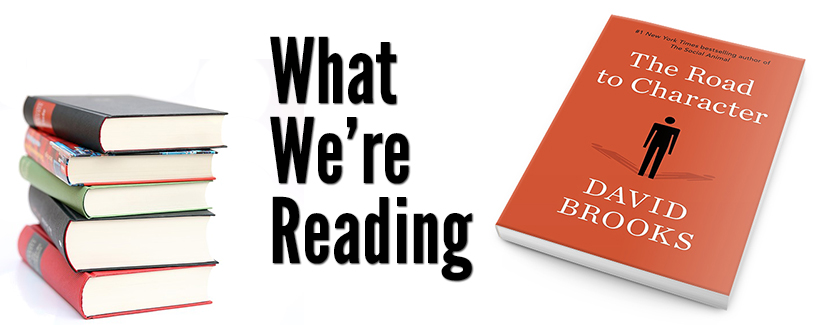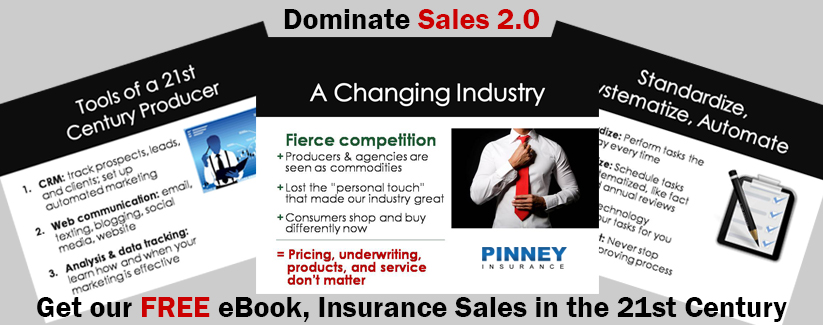
This month, we’re reading The Road to Character by David Brooks. This book dovetails with our focus topic for February, the LifeHappens Insure Your Love campaign. Our founder, Jan Pinney, has a saying: “Only people of character who love someone more than they love money buy life insurance.” Let’s see if we can tie what Brooks found out about character to the people who are most likely to buy life insurance this month.
Brooks starts out by contrasting the achievements the outside world values (called “resume virtues”) with the achievements we should value in our personal lives (called “eulogy virtues”). Our culture and the world at large insist that we develop and show off our resume virtues – wealth, success, etc. Of course, doing this requires self-promotion. We have to advertise ourselves and our achievements, or who’d ever know about them?
Of course, these self-promotional qualities often at odds with qualities like humility, respect, and sympathy. The former might help you build a business, but the latter are what help you build your character. This creates two distinct sides to our nature: Adam I is focused on the outside world’s values, while Adam II is focused on living a rich inner life. You can guess which one Brooks wants us to focus on.
The Road to Character: Adam I vs. Adam II
Moral improvement occurs most reliably when the heart is warmed, when we come into contact with people we admire and love and we consciously and unconsciously bend our lives to mimic theirs.
Brooks tells the story about listening to a rebroadcast of a variety show that originally aired in 1945, immediately after the end of World War II. Although the broadcast was full of famous actors and singers, no one was self-congratulatory about winning the war. Everyone who spoke or sang was humble, probably still shocked by the deployment of the atom bomb, and in the end, simply grateful the conflict was over. After listening to that show, Brooks went inside and watched football. He saw a receiver make a two-yard gain and do a showy victory dance. The contrast helped crystallize the difference between Adam I and Adam II in Brooks’s mind.
So he went in search of data to support his theory that over time, we’ve moved away from humility to a culture that’s all about the “Big Me” as he calls it. The first piece of evidence? When high school seniors were asked if they thought of themselves as important people, only 12% said yes in 1950. In 2005, a whopping 80% said yes.
Because we’re becoming more self-centered, Brooks says, it’s getting harder to see the world objectively. We’re quick to compare ourselves to others. We put the wrong things first in our lives. This quote really struck me, since it’s so similar to what Jan has said: “We all know that the love you feel for your children or parents should be higher than the love you have for money.”
Talk about a built-in marketing campaign for life insurance!
What Does Character Look Like?
Humility is freedom from the need to prove you are superior all the time...
For Brooks, character is rooted in a deep understand of self. It means being dignified and often quiet, even when someone is trying to provoke you. But it’s not about being shy or a pushover. It also means you get stuff done. You’re not worried about who notices the awesome things you do. You do them because they’re the right thing to do. And then you move on and find the next right thing to do, without broadcasting it or taking credit or making sure someone saw it.
The point of the book is to challenge us – to help us get back in touch with the Adam II part of our nature. We need to be aware of our own weaknesses and struggle to defeat them, which in turn leads to self-respect – and when we respect ourselves, we don’t need so much affirmation from the outside world.
What Does this Mean for Life Insurance Sales?
We have a chance to take advantage of everyday occasions to build virtue in ourselves and be of service to the world.
There’s a two-part answer here. This isn’t a book about sales, but it’s a book about becoming our best selves, which is at the heart of being a good salesperson. Most purchases are made because the user has a desire to do or be someone a little better than they are right now. With life insurance, they want to protect their loved ones from hardship. Knowing that, you can use the ideas in this book in your marketing efforts:
- How can you make a prospect feel like they’re becoming a better person?
- How can you make a prospect feel like they’re defeating the “Adam I” characteristics of egotism and self-centeredness?
- How can you show them that life insurance is about making a selfless decision?
The second part of the answer has to do with us, the salespeople.
According to Brooks, you’re not going to be a lasting success if you can’t nurture your “Adam I” at the expense of your “Adam II.” Without strong morals and a rich inner life, “your Watergate, your scandal, your betrayal, will happen.” To keep from making mistakes in business, we need to strive against our own weaknesses. Maybe that weakness is loving money, which keeps you from adding staff or making upgrades that would help your clients and employees. Maybe that weakness is selfishness with time, brushing off others in the industry who need a mentor or a sounding board for new ideas.
Whatever your particular weaknesses are, take stock of them and then work to defeat them. If Brooks is right, your business will prosper and you’ll find happiness no matter what.

